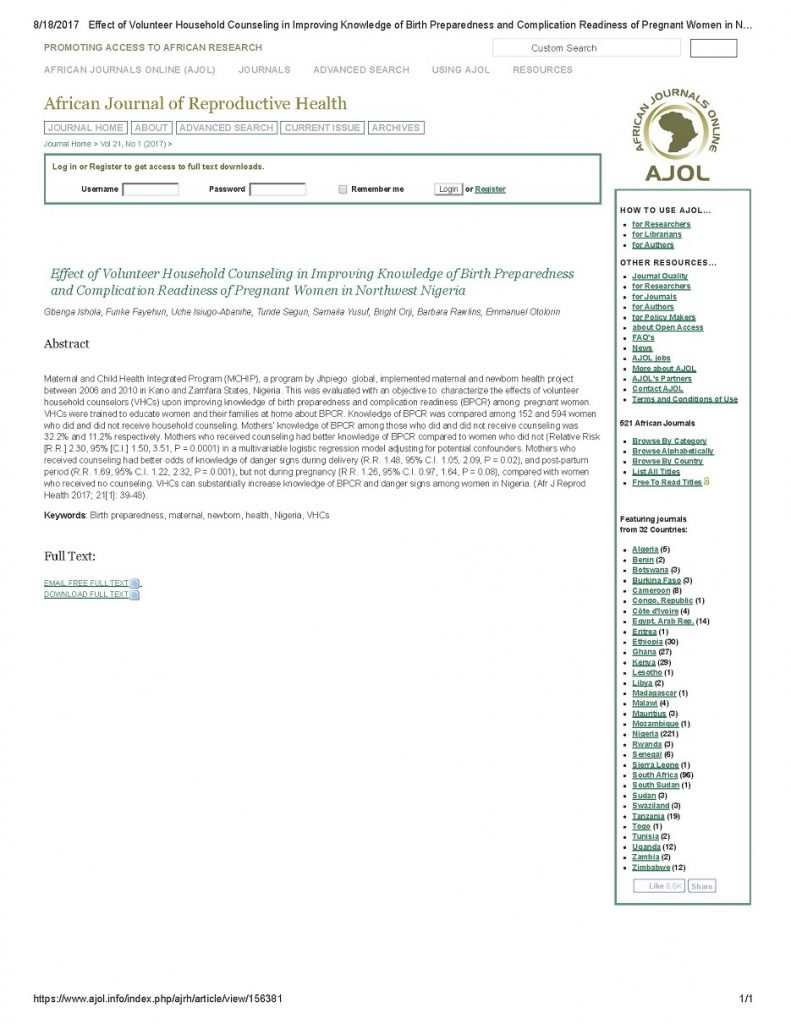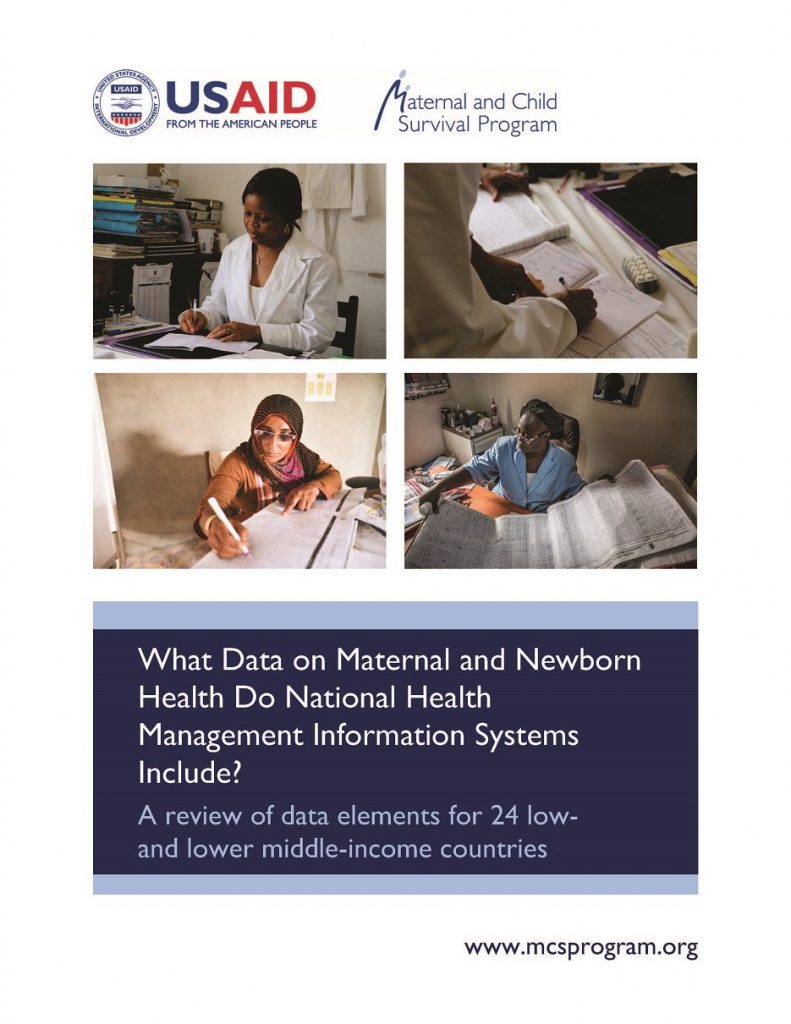
Routine Health Management Information Systems (HMIS) are the backbone of monitoring service delivery programs at the national level in low- and middle-income countries. Several global initiatives, such as Ending Preventable Maternal Mortality, Every Newborn Action Plan, and Every Woman Every Child, have issued recommendations for core maternal and newborn health (MNH) indicators, including some that […]
Read More…
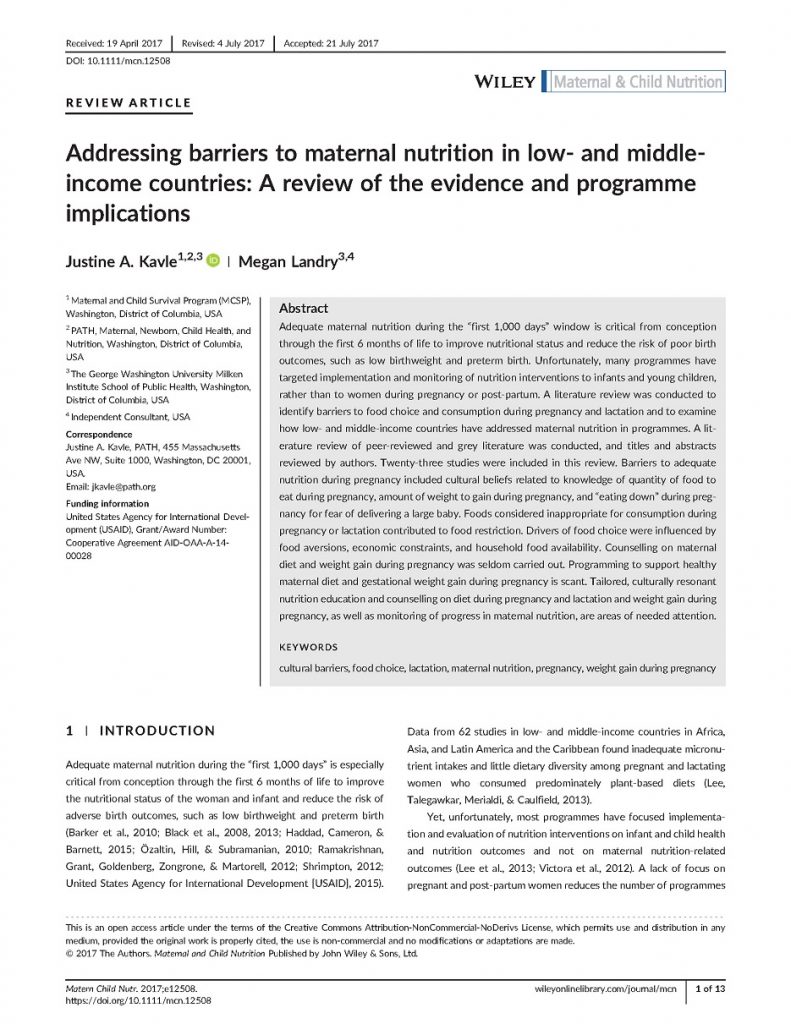
Adequate maternal nutrition during the “first 1,000 days” window is critical from conception through the first 6 months of life to improve nutritional status and reduce the risk of poor birth outcomes, such as low birthweight and preterm birth. Unfortunately, many programmes have targeted implementation and monitoring of nutrition interventions to infants and young children, […]
Read More…
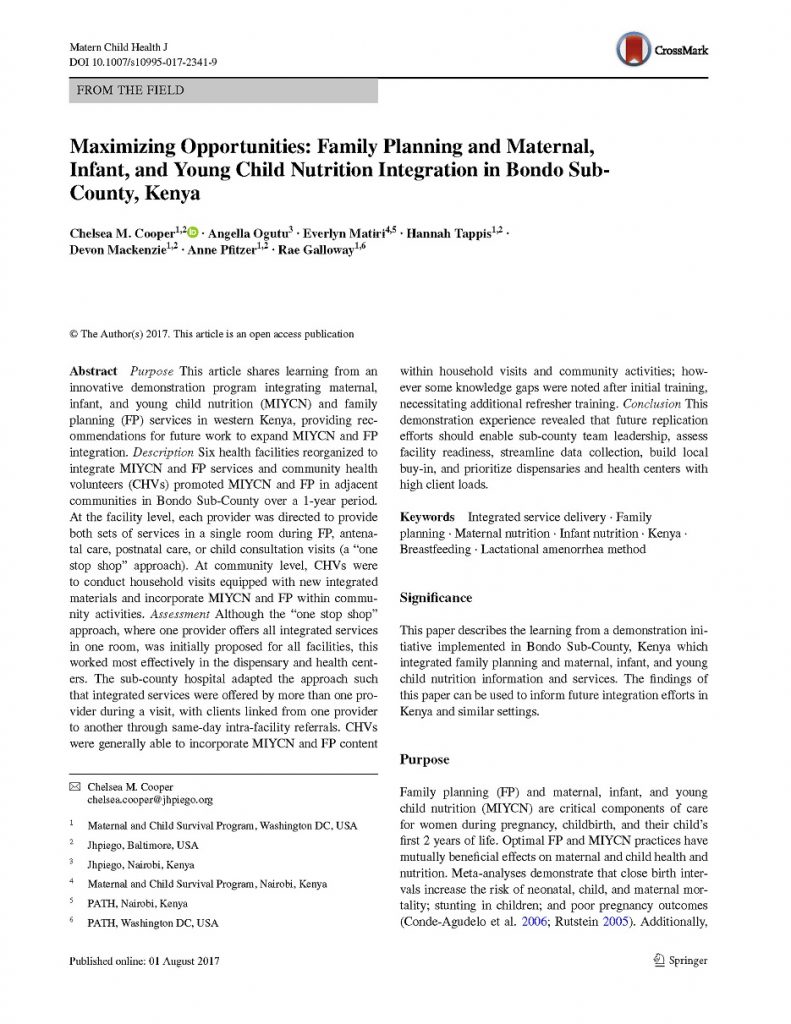
This article shares learning from an innovative demonstration program integrating maternal, infant, and young child nutrition (MIYCN) and family planning (FP) services in western Kenya, providing recommendations for future work to expand MIYCN and FP integration. Description Six health facilities reorganized to integrate MIYCN and FP services and community health volunteers (CHVs) promoted MIYCN and FP in adjacent communities in Bondo Sub-County […]
Read More…
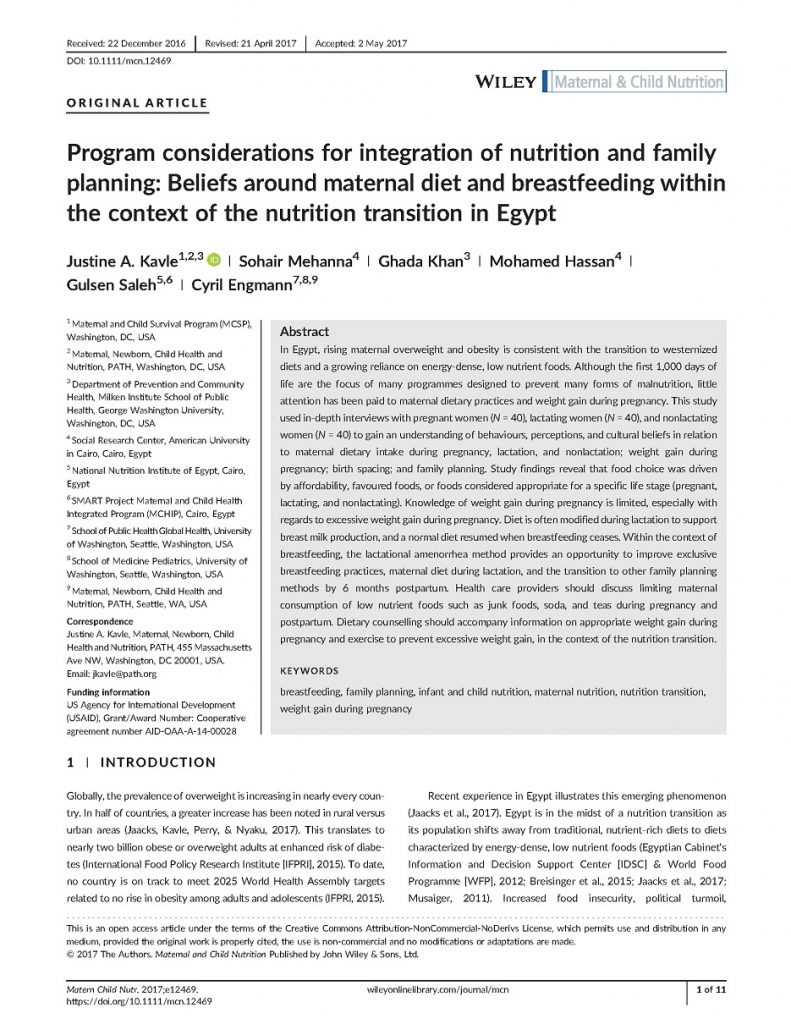
This study used in-depth interviews with pregnant women, lactating women, and nonlactating women to gain an understanding of behaviors, perceptions, and cultural beliefs in relation to maternal dietary intake during pregnancy, lactation, and nonlactation; weight gain during pregnancy; birth spacing; and family planning. To read the full, open access article in Maternal and Child Nutrition, click […]
Read More…
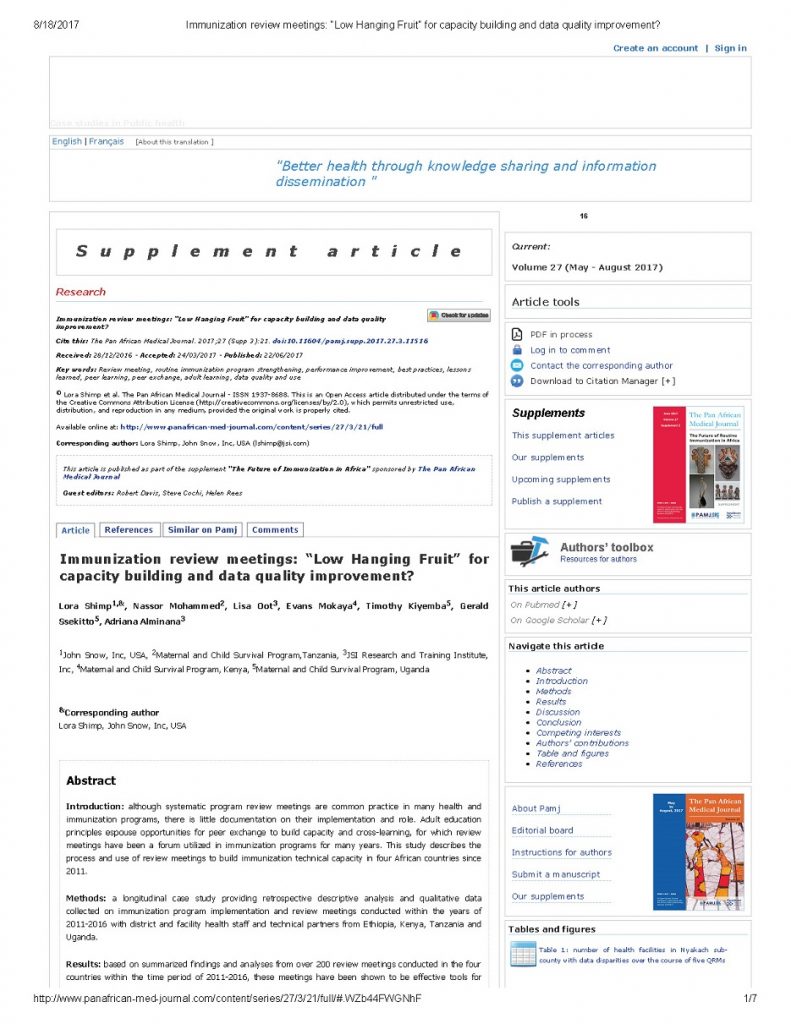
Although systematic program review meetings are common practice in many health and immunization programs, there is little documentation on their implementation and role. Adult education principles espouse opportunities for peer exchange to build capacity and cross-learning, for which review meetings have been a forum utilized in immunization programs for many years. This study describes the […]
Read More…
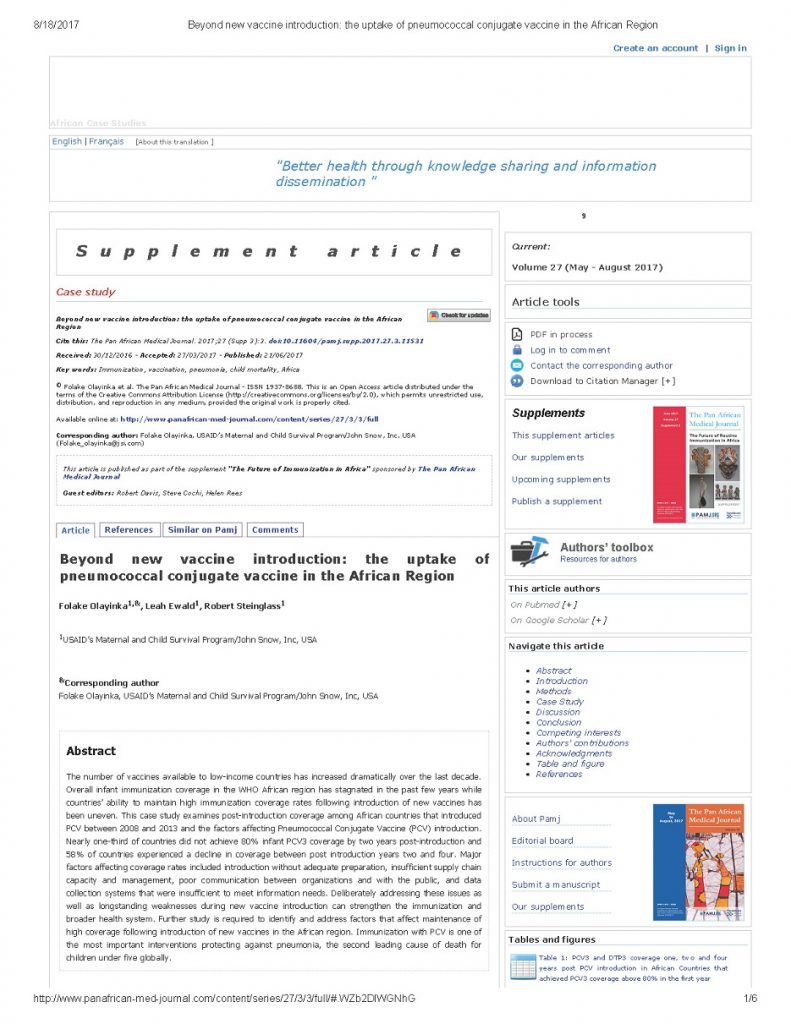
The number of vaccines available to low-income countries has increased dramatically over the last decade. Overall infant immunization coverage in the WHO African region has stagnated in the past few years while countries’ ability to maintain high immunization coverage rates following introduction of new vaccines has been uneven. This case study examines post-introduction coverage among […]
Read More…
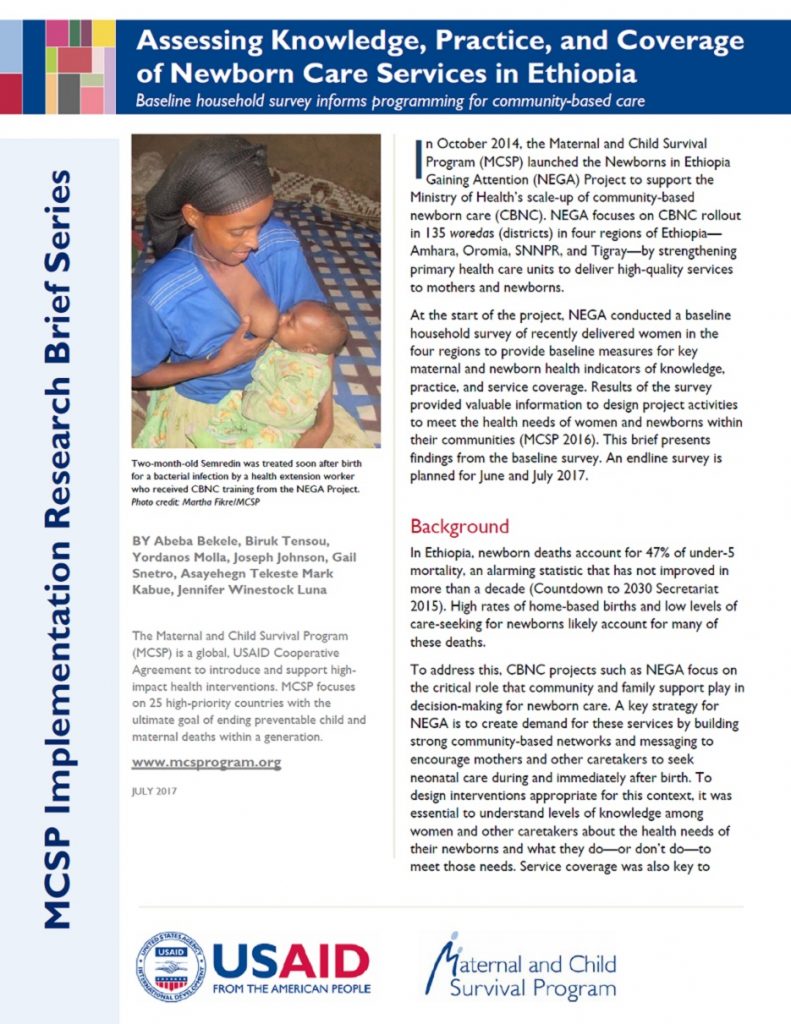
This brief presents findings from the baseline of the Newborns in Ethiopia Gaining Attention (NEGA) project. This project conducted a baseline household survey of recently delivered women in the four regions to provide baseline measures for key maternal and newborn health indicators of knowledge, practice, and service coverage. Results of the survey provided valuable information to design project activities to meet […]
Read More…
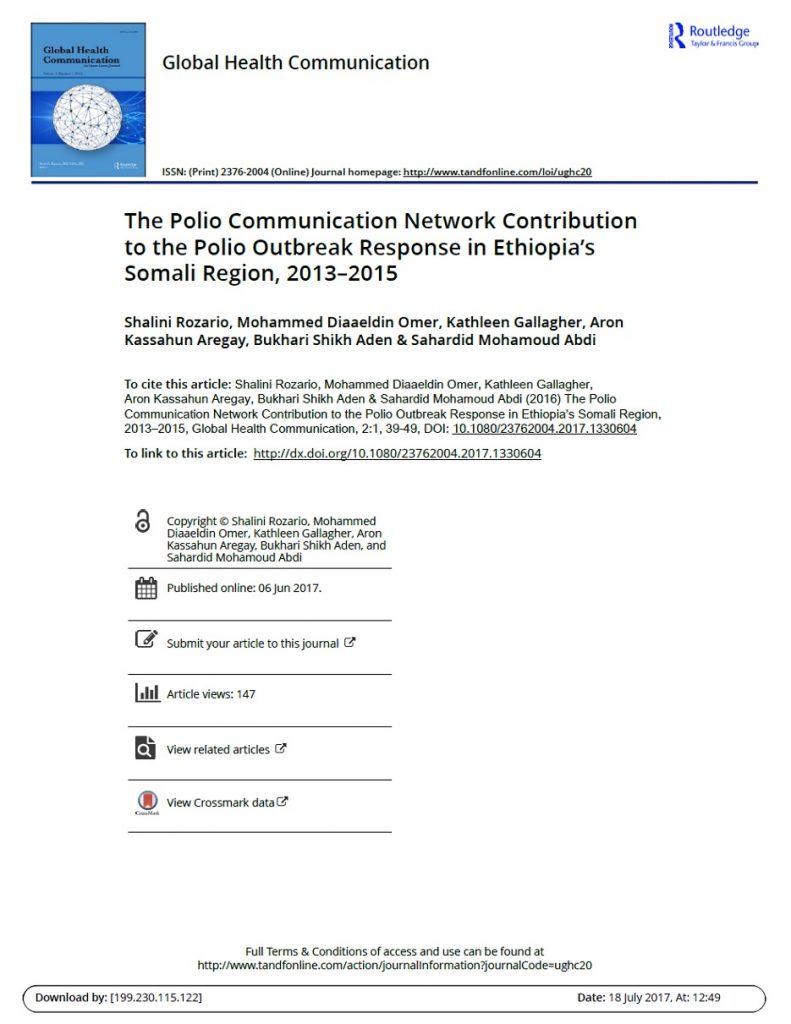
Published in Global Health Communication, this article explores the Polio Communication Network’s (PCN) contribution to the polio outbreak response in the Somali Region of Ethiopia from 2013 to 2015. The PCN strategies and innovations include the establishment of a communication network of experts, development of partnerships with locally trusted and influential groups, and capacity building of local structures. To […]
Read More…
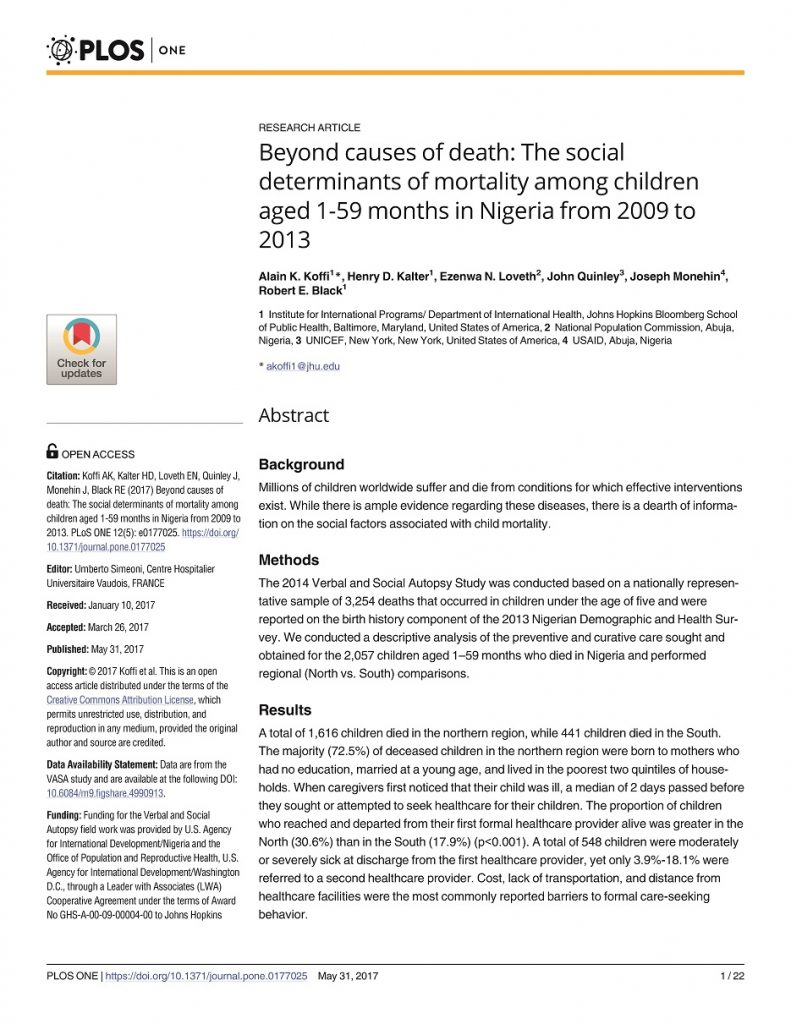
The 2014 Verbal and Social Autopsy Study was conducted based on a nationally representative sample of 3,254 deaths that occurred in children under the age of five and were reported on the birth history component of the 2013 Nigerian Demographic and Health Survey. Published in PLOS ONE, this is a descriptive analysis of the preventive and […]
Read More…



